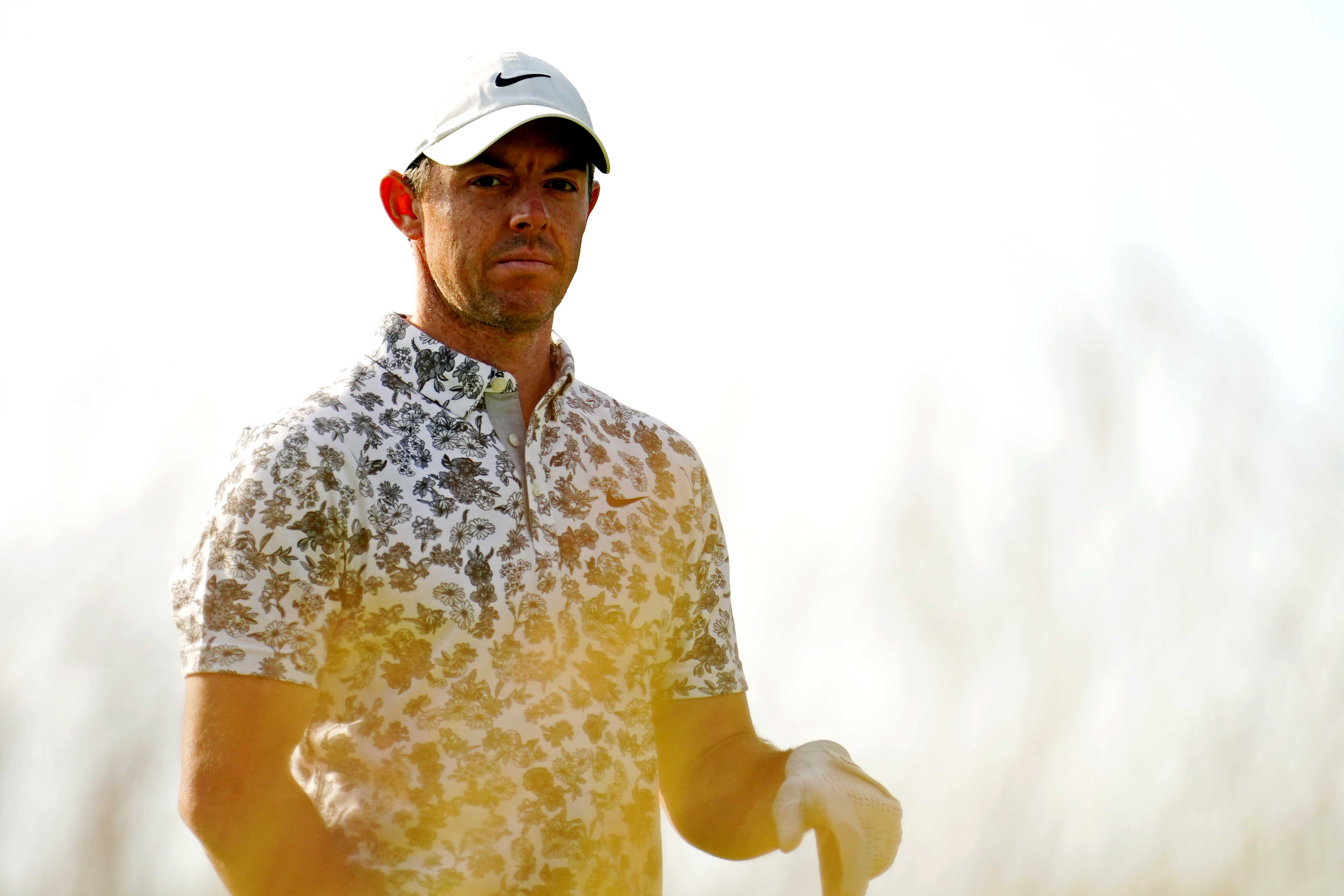BROOKLINE, Mass. — The armchair analysts’ canon holds that the less intellectually inquisitive a player, the more successful he will be, that incuriosity (or, less generously, obtuseness) limits potential distractions. Dustin Johnson is often presented as exhibit ‘A’ for this specious argument, but there are ample examples of elite golfers who disprove the theory. One of them was atop the leaderboard after his first round at the 122nd U.S. Open.
For more than two years, and particularly in the last few weeks, Rory McIlroy has been anointed the conscience of the PGA Tour, a player who is both thoughtful in his reasoning and eloquent in his rejection when it comes to the Saudi-funded LIV Golf series. Other prominent players have stood with him in that—Justin Thomas, Jon Rahm, Will Zalatoris, to name but three—but it’s McIlroy who has largely become the apostolic leader of the resistance.
The incessant noise around LIV Golf—the sole topic of discussion at The Country Club this week, and every other week on Tour—has proven a distraction for many of those who have recently consummated their relationship with the Saudis, or who are still furtively flirting in the shadows. Dustin Johnson hasn’t been in contention (outside the Bonesaw circuit) since winning the Masters 19 months ago. Louis Oosthuizen has been in the doldrums since last summer, and will soon return to St. Andrews to mark 12 years since the only occasion on which he beat an elite field. Bryson DeChambeau is battling a balky body and balkier form. Those realities might not be unrelated to why the Saudi cash-out has appeal, of course.
The only people seemingly inspired to play better golf under the specter of LIV Golf have been its opponents. Thomas won the PGA Championship last month in a playoff with Zalatoris. Last weekend, McIlroy won the RBC Canadian Open and delivered le mot juste on the 18th green by noting that the victory—his 21st on the PGA Tour—moved him ahead of “someone else” on the all-time wins list, a phrasing that further illustrated how unspeakable Greg Norman has become.
The Saudi shenanigans surely didn’t enter the heads of Thomas or Zalatoris when they were competing at Southern Hills and it’s not impacting McIlroy at The Country Club. After his opening round 67, the Northern Irishman was asked if the kerfuffle outside the ropes gave him added incentive to make a statement inside. “Not really,” he said. “It’s been eight years since I won a major, and I just want to get my hands on one again.”
There’s a charming simplicity in McIlroy’s answer: a golfer focused only on trying to win a championship that will define his enduring legacy, not a man consumed with figuring out when to bolt for a rival tour, for how much, and at what cost to his reputation. Even those who aren’t planning to decamp to the deplorables can’t escape the grinding of the rumor mill.
“I heard you’re going,” a friend remarked to a top-10 player earlier this week.
“I’m not going anywhere,” he replied, shocked that his name was out there.
McIlroy’s performance Thursday, and that last week in Toronto, illustrated the difference between a simple mind and an uncluttered one. His game is in sublime shape, his family is stable, his professional pathway is clear, his goals are unchanged, his lawyers aren’t burning the midnight oil, and his conscience isn’t for sale. There are plenty of others in the locker room who’d be lucky to check a couple of those boxes.
His opening 67 marked the second consecutive fast start at a major for McIlroy, and continues to buck a trend that was becoming a burden. Too often he has found himself fighting off the back foot in majors. At the last two Masters, he opened over par with 73 and 76. At last year’s PGA Championship it was 75. There was a time when that habit was evident too at the U.S. Open, traditionally the most demanding of the big four: 80 at Shinnecock Hills in ’18, 78 at Erin Hills the year prior, 77 at Oakmont in ’16. But Thursday of ’22 was the fourth-straight Open that McIlroy has started with an under-par score, and he admitted it makes a huge difference to his mindset.
“You feel like you’re right in the tournament from the start of the week, which is nice,” he said. “I’m going into tomorrow with the mindset of let’s keep it going, rather than where is the cut line or whatever. If you don’t get off to a great start those thoughts start to creep in—okay, what do I need to just be here for the weekend? It’s certainly a different mindset when you get off to a good start, and yeah, I’ve just got to keep it going.”
After his round, McIlroy was asked how it felt to be placed on a lofty pedestal—not for his accomplishments but as the conscience of a sport facing a hostile takeover by sportswashers. He brushed it off. “I’m just being me. I’m living my life. I’m doing what I think is right and trying to play the best golf that I possibly can,” he said. “I wasn’t asked to be put here. I wasn’t trying to be in this position. I’m just being me.”
And for one day at least, being himself was better than being anyone else in the only place it matters in golf: on the leaderboard at a major championship.

